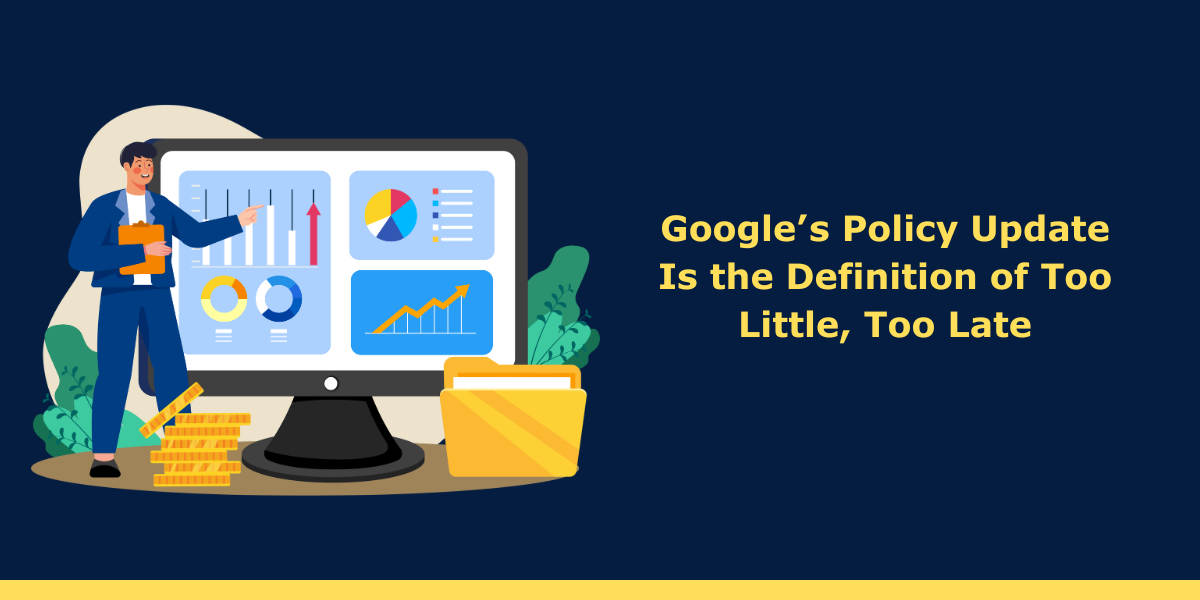
Google’s new site reputation abuse policy aims to curb a growing issue: large, authoritative websites exploiting their domain strength to dominate search results for content they don’t own or create. But while the policy is a step forward, it fails to address the deeper flaws in Google’s algorithm that enable this abuse in the first place.
What Is Google’s Site Reputation Abuse Policy?
Introduced in March 2024, this policy attempts to tackle one of the most pervasive forms of search manipulation: parasite SEO. This occurs when high-authority websites act as hosts for third-party content, using their domain strength to rank for keywords outside their expertise.
For example, a reputable business site might host a coupon section filled with third-party data, allowing them to dominate search rankings without creating or owning the content.
In its latest update, Google expanded the policy to include partnerships such as:
- White-label services.
- Licensing agreements.
- Partial ownership arrangements.
- Other intricate business models designed to game the system.
The goal? To limit scenarios where external entities collaborate with authoritative sites to piggyback on their domain strength for better rankings.
Parasite SEO Is Bigger Than Ever
These practices have reached a scale that Google struggles to manage effectively. Take Forbes Advisor, a standout case highlighted by Lars Lofgren in his investigative piece, “Forbes Marketplace: The Parasite SEO Company Trying to Devour Its Host.” Lofgren uncovered that Forbes Advisor, in partnership with Marketplace.co, generates an estimated $236 million annually from parasite SEO tactics.
Forbes isn’t alone. Platforms like LinkedIn have seen an explosion in user-generated content that leverages the site’s domain authority to secure top spots in search results.
The Policy Isn’t Enough
Despite its intentions, Google’s site reputation abuse policy doesn’t address the core issue: large, authoritative sites ranking for queries they shouldn’t dominate.
Take Progressive’s Lifelines blog as an example. Primarily focused on insurance and driving, the blog also ranks for a query like “puppy after vaccination side effects”—an area far outside its expertise. While this may be an innocent one-off, it illustrates how Google’s algorithm prioritizes domain authority over topical relevance.
This creates an environment where authoritative sites can easily pivot into parasite SEO programs, intentionally or not, with minimal effort.
Why Google’s Algorithms Are Falling Short
The real problem lies in the algorithmic signals Google prioritizes. Increasingly, Google appears to favor brand authority—how often a site is searched for by name—over domain authority or topical expertise.
This approach allows big brands like Forbes or CNN to outperform genuine experts in niche fields. Leaks from the Google Search API suggest that variables like “siteEmbedding” and “siteFocusScore” could help Google better evaluate topical authority. However, these signals aren’t being leveraged effectively.
A Band-Aid, Not a Cure
Ultimately, the site reputation abuse policy serves as a stopgap. It’s a reactive measure designed to address abuses afterthey occur, rather than preventing them in the first place.
While it may deter the most blatant offenders, it’s clear that a more robust solution is needed. Google must prioritize algorithmic improvements that reward true topical expertise, ensuring that search results are both relevant and trustworthy.
What’s Next?
The site reputation abuse policy is a wake-up call for the SEO community. While it’s a step in the right direction, the long-term solution lies in evolving Google’s algorithms to focus on topical authority and penalize dilution of expertise.
Until then, expect this policy to be more of a band-aid than a cure, leaving the door open for savvy operators to exploit Google’s systemic weaknesses.
f it all still feels overwhelming, don’t worry—our monthly SEO packages are here to make things simple. Let the experts handle it for you!

